A powerful idea that can inspire community-driven development in Bangladesh
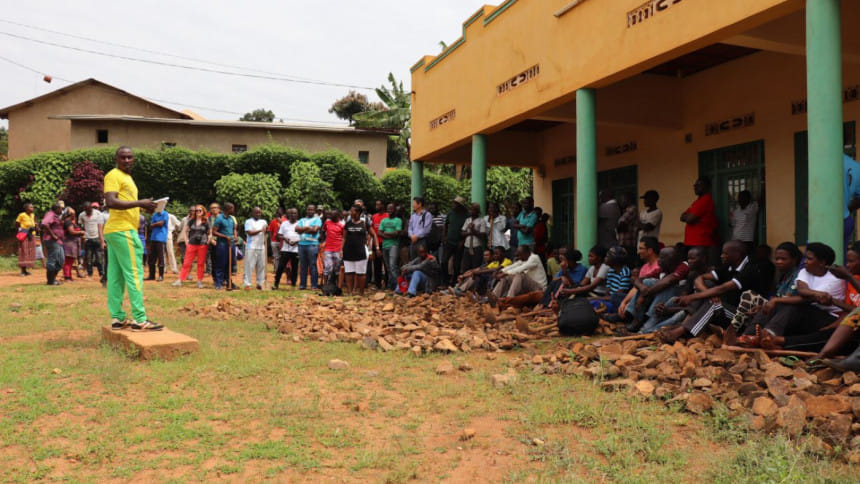
I went to Rwanda as part of the Sustainable Healthy and Learning City (SHLC) project, a consortium, to conduct research and explore global challenges to create sustainable and healthy cities in developing countries. When I was travelling to Rwanda, I was expecting to meet with many uncertainties and challenges given that it's a country still struggling to recover from the wounds of war and genocide.
But when I arrived, I was astonished to see how clean and green Rwanda's capital Kigali is. People there follow traffic rules and diligently obey traffic signs. While visiting some neighbourhoods, I saw well-planned residential areas that adhered to urban design guidelines. Among many pleasant surprises, I was especially happy to discover "Umuganda", an outstanding community initiative that I believe can set an example for the whole world. I was accompanied by more than 32 leading academics from seven participating countries including the United Kingdom, Philippines, India, China, Tanzania, South Africa, and Bangladesh. All the participants agreed that what Rwanda was doing through "Umuganda" could be emulated by the rest of the world.
Umuganda is a simple yet powerful idea; it's a collaboration between members of a community with an aim to contribute to the development of the neighbourhood. They come together every last Saturday of the month. The community combines their efforts to clean roads, build infrastructure, mend roads, and more. They even close their shops and stop doing other activities for at least three hours (starting from 7am) so that they can devote time when working with other members of the community. We realised the seriousness and commitment of the government when we were stopped several times on our way to a community activity that we participated in. The police stopped us three times and were not convinced until we showed them proof that we had special permission from the city mayor.
We were once again pleasantly surprised when we arrived in a neighbourhood and became a part of their community work. That day, people gathered to repair a road that was heavily damaged by recent rain. Tracks brought soil from a nearby site to make the road usable for vehicles. The soil brought was volunteered by a neighbour who had a construction site which he dug and had the soil left over as a result. We were welcomed by the community and had a chance to work with them. During the community work, locals shared their stories of success of joint collaboration in many similar activities. They were happy that they were able to raise funds, however small, and no more relied on government funds.
When we joined the post-work meeting along with the community, they explained that "Umuganda" meant "coming together with a common purpose to achieve an outcome." It became official in 1974 although the practice began right after the independence of the country in 1962. The initiative in its current extent and form has been there since 1998 as part of an effort to rebuild the country after the ravage that followed the genocide of the Tutsi in the 90s. Although initially the government struggled to make this activity popular, it was gradually accepted and welcomed when people saw the results that Umuganda could bring. Because of its success in controlling erosion and building primary schools, administrative offices and health centres, the initiative began getting attention and praise. The success encouraged voluntary participation of the people and community leaders.
The activity is managed by selected committees which are responsible for organising, supervising, evaluating and reporting the work done and, more importantly, motivating people. Statistics reveal that Umuganda's contribution to the country's development since 2007 is estimated at more than USD 60 million. The results are visible all around the country, especially in Kigali, the capital city.
We visited a different neighbourhood as part of the project and noticed that the cities are very clean and found very little garbage on the streets. When talking to people, we were convinced that they took pride to be a part of this community-driven initiative. The self-dependency of the community was clearly recognised in the monetary participation of the community which ensured that neighbourhood watch and a system of solid waste collection could be provided.
The success of Umuganda is rooted in the commitment of the community—something that can easily be emulated in Bangladesh. Our culture and tradition of community bonding in rural areas especially can be utilised effectively in development programmes through activities such as Umuganda. As a result, labour costs and the amount of money being diverted to corruption would go down since the initiative would be participated in and financed by direct beneficiaries. In the face of rapid urbanisation and limited tax recovery by the government, people's pro-active involvement in community work may highly benefit our country by creating better and sustainable neighbourhoods in cities and villages. This would give the community a sense of ownership and belonging. Be it traffic management, keeping our cities clean, or preventing the loss of greenery in neighbourhoods, community action can be very effective in resolving many issues.
Africa gave me hope. If Rwanda can do this, why can't we? We have more people in our cities, we have strong community bonding, and we have achieved significant progress over the last few decades. With initiatives like Umuganda, we will be able to play our part in community development and be proud of ourselves.
Dr Tanjil Sowgat is Professor, Urban and Rural Planning Discipline, Khulna University, Bangladesh, and In-Country Co-Investigator, Sustainable Healthy and Learning City (SHLC) project (funded by UKRI).





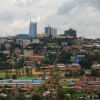
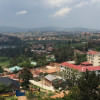
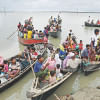

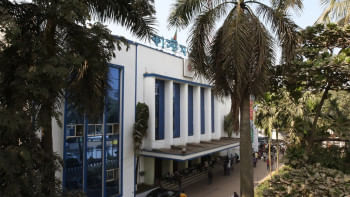
Comments